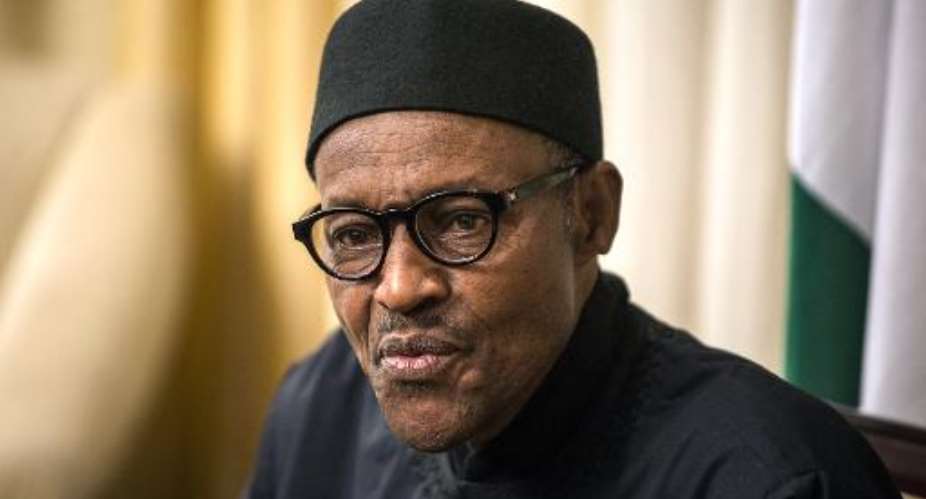Abuja (AFP) - Nigeria's President Muhammadu Buhari on Monday slammed the state of the country's finances, claiming his predecessor had left Africa's biggest economy deep in debt and the treasury "virtually empty".
There are high expectations that Buhari, who defeated Goodluck Jonathan in March elections, will turn around Nigeria's fortunes, with the country riddled with corruption and the crude-dependent economy reeling from global oil shocks.
But the 72-year-old, elected on a promise of cleaning up Nigeria's dirty politics and ending Boko Haram's Islamist insurgency, indicated the funds to deliver were not immediately available to do so.
"I hope we are starting and this culture of 100 days (in power) is bringing so much pressure, with (the) treasury virtually empty, with debts in millions of dollars, with state workers and even federal workers not paid their salaries," he told reporters in Abuja.
The former military ruler, whose 20-month tenure in the 1980s was characterised by a war against graft and "indiscipline", described the situation as "a disgrace for Nigeria" and warned people could take to the streets if nothing was done.
Nigeria, which is Africa's leading oil producer and dependent on crude for a massive 90 percent of foreign earnings, was already feeling the effect of the halving of global oil prices from mid-2014 even before Buhari took over.
Squeezed government revenues forced this year's budget to be revised and federal projects scrapped or halted while state employees have gone months without being paid.
In the week he took office on May 29, the country virtually ground to a halt because of fuel shortages linked to alleged government defaults on subsidy payments to fuel importers.
At the same time, electricity production plunged to a record low of just over 1,000 megawatts -- woefully short of the amount of power required for Nigeria's 173 million people.
Buhari described the economic situation he inherited as rank "bad management", without giving specific figures.
Vice-President Yemi Osinbajo had estimated the country's debts stood at some $60 billion on the handover of power three weeks ago.
Former finance minister Ngozi Okonjo-Iweala has rejected the claim -- and indications since the figure could be even higher -- saying the debt was much lower and most of it was incurred by states, rather than the federal government.





 Dumsor: Don't rush to demand timetable; the problem may be temporary — Atik Moha...
Dumsor: Don't rush to demand timetable; the problem may be temporary — Atik Moha...
 Space X Starlink’s satellite broadband approved in Ghana — NCA
Space X Starlink’s satellite broadband approved in Ghana — NCA
 2024 election will be decided on the grounds of the economy; choice of running m...
2024 election will be decided on the grounds of the economy; choice of running m...
 Dumsor: We're demanding less; just give us a timetable — Kwesi Pratt to ECG
Dumsor: We're demanding less; just give us a timetable — Kwesi Pratt to ECG
 Do I have to apologise for doing my security work, I won’t – Simon Osei-Mensah r...
Do I have to apologise for doing my security work, I won’t – Simon Osei-Mensah r...
 All my businesses have collapsed under Akufo-Addo — NDC Central regional chair
All my businesses have collapsed under Akufo-Addo — NDC Central regional chair
 Military, Prison Officers clash in Bawku, three injured
Military, Prison Officers clash in Bawku, three injured
 GRA-SML contract: MFWA files RTI request demanding KPMG report
GRA-SML contract: MFWA files RTI request demanding KPMG report
 Court threatens to call second accused to testify if NDC's Ofosu Ampofo fails to...
Court threatens to call second accused to testify if NDC's Ofosu Ampofo fails to...
 Family accuses hospital of medical negligence, extortion in death of 17-year-old...
Family accuses hospital of medical negligence, extortion in death of 17-year-old...
